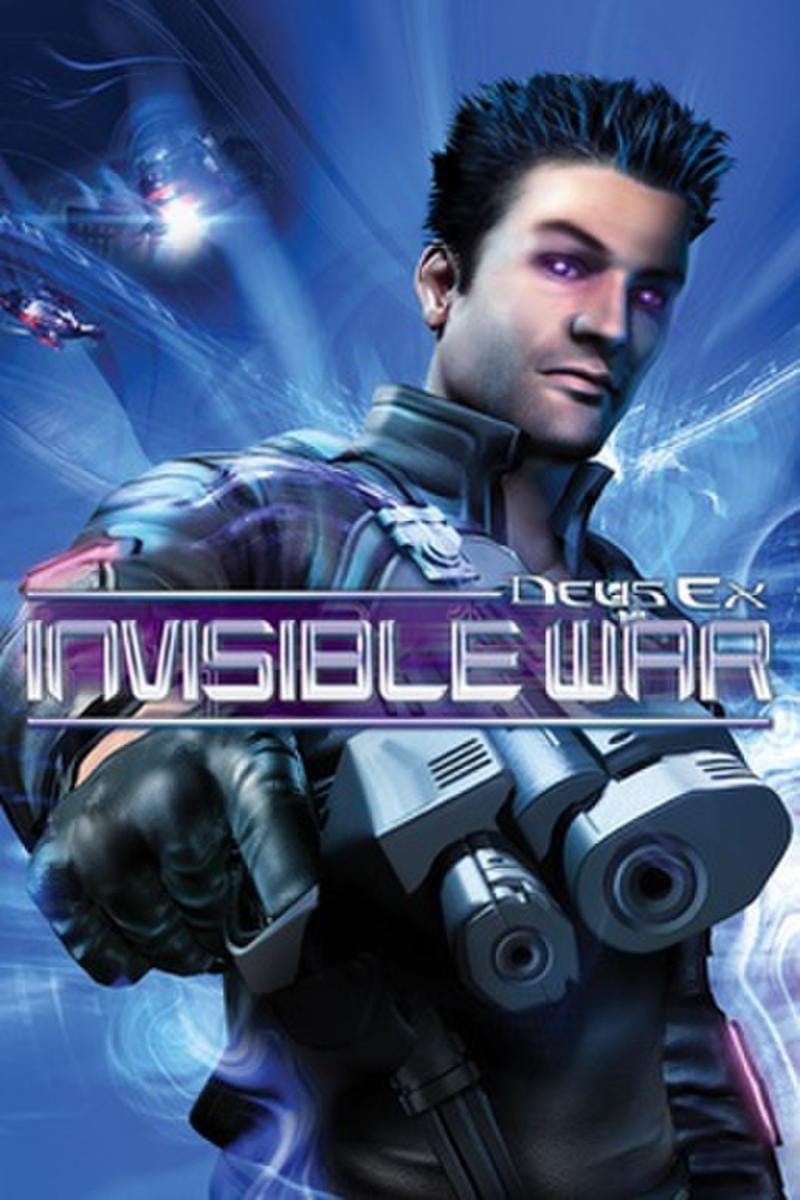
I own too many video games I haven’t played. In this series, I will be going through my backlog. The rules? I don’t need to finish the game, but I must play at least two hours, and must write my thoughts about it. Today, the black sheep sequel to an all-time classic, Deus Ex: Invisible War
Creating a sequel to Deus Ex is not something I would wish on anyone, not even most of the original development team. The classic game famously came together at the last minute and very narrowly missed its mark in several ways. Watching the Warren Spector GDC retrospective makes the game seem more like a series of miracles, despite the obvious talent and pedigree of everyone working on it. Art can be like that - a solid core with lots of ambition to weigh down the overall experience. Even Deus Ex’s biggest fans (myself included) can admit the game never quite reaches the heights of its opening level, even though the game is a certifiable classic.
Playing Invisible War makes the failings of Human Revolution (the several years later prequel by an entirely new studio) make a lot more sense, as a lot of Human Revolution’s failings are actually present in Invisible War. In an attempt to break into the console market, Invisible War trades the originals expanse (or at least, its facade of expanse) for density, and to middling effect. The technology just wasn’t there at the time to sell densely-packed spaces as inhabited and lively. The Elder Scrolls III: Morrowind was a contemporary with a similar issue, but gets away with it by allowing cramped bars and cities to be something the player spends only a fraction of their time interacting with. In Invisible War, that’s the ballgame.
Invisible War also lacks the player expression possible in the original, and feels more like picking one of a few paths the developers have laid out for you rather than actual creative problem solving. No discoveries like using tear gas to block lasers here. Even the universal ammo, which seems to be an attempt to reduce friction at first, winds up turning the player’s gun into a situational skeleton key, rather than a series of inventory decisions to be making at any given time.
These work in tandem to create less of a player-driven problem solving sandbox, and more of a series of hallways with static NPCs that are happy to divulge their entire life story to an armed, leather-clad weirdo who has walked into their coffee shop. Sure, in the original, characters were rather loose-lipped, but this usually reflected something about them: JC Denton was (at the beginning) an agency man, and characters reacted accordingly to his presence and were more or less willing to share their information based on how they felt about UNATCO or how intimidated they were by Denton in general. The protagonist of Invisible War, Alex D, is not an agent but rather a refugee from an attack on a secret Illuminati-backed program. Why on Earth would a business owner ask a total stranger to firebomb their competition’s store in their very first conversation? Why are members of a secret society simply walking around in the middle of the night, preaching the virtues of The Knight’s Templar to random passerby? Sure, this is a conceit of many an RPG (if people were as slow to trust in RPGs as they were in real life, no one would ever get a side quest), but the brazenness of it here makes the world feel yet smaller. More flashing signs for hallways to venture down.
I do think Invisible War is somewhat unfairly maligned - there’s nothing here so egregious that makes it significantly worse than many of its contemporaries, but it is a step down from the original in so many ways, I found myself just wanting to fire up Deus Ex for the thousandth time rather than spend any more time in Invisible War’s shoebox diorama world.